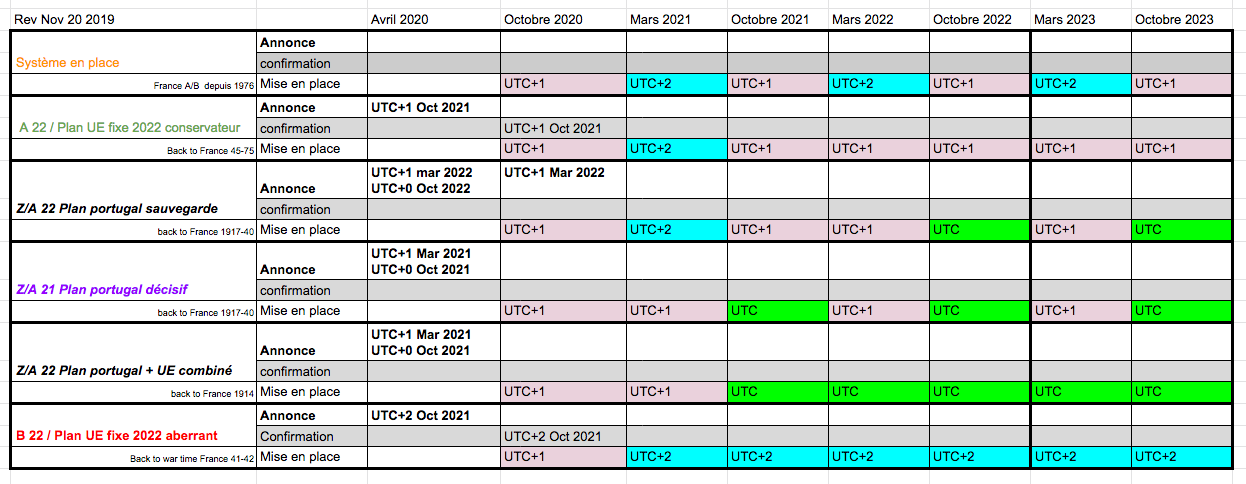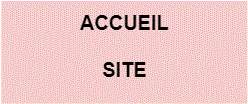
Association française ACHED
pour la fin de l'heure
d'été double
pour la réduction des avancements
de l'heure
French
Association ACHED for
reduced
time
advance
Position
Paper
Original page in French here
Reason asking to reduce
time advances
Attachments including sources
and letters
Index
SUMMARY, A MUST SEE DOCUMENT
BRIEF TAKE AWAY ON IMPACT OF CURRENT SUMMERTIME ARRANGEMENTS, PER SECTOR
ENVIRONMENT
SLEEP
HEALTH
POLLUTION
ENERGY
LEISURE AND TOURISM
LOGISTICS
TRANSPORTATION AND SAFETY
PHYSICAL AND INTELLECTUAL ACTIVITIES, EDUCATION
CLIMAT
ABOUT THE IDEA OF PERMANENT SUMMERTIME IN FRANCE AND EUROPE
CONCLUSION
ATTACHMENTS 1 ESSENTIAL SOURCES
ATTACHMENTS 2 WORD FROM EXPERTS
ATTACHMENTS 3 in progress, North American perspective, more sources
SUMMARY, A
MUST SEE DOCUMENT ABOUT PUBLIC
HEALTH
You can browse all sectors, all aspects. In the end we hope that you will retain that
-
No reason is strong enough to justify keeping clocks at UTC + 2 in France. You may find advantages to UTC + 2, but many are either limited or illusory and they don't fare well when confronted with other impacts.
- The conclusion that emerges from more than 100 years of summer time arrangements and already 43 years of double summer time in France is that:
a) time changes are harmful to health;
b) the advance of time is also harmful, just as much if not more than the changes;
c) the energy saving argument is not in favor of maintaining UTC + 2;
d) There is a risk of paralysis, division and tension if we encourage lies, omissions and factions
- While informing, it is therefore necessary to proceed without delay to the reduction of the time advance by all means.
It is useful to analyze all the sectors to overcome the obstacles, help the good implementation and seize the opportunities We give you below a brief analysis of the impact by sectors. For a longer analysis, refer to the bibliography.
The scientific community has not always been so clear about the harmfulness of daylight saving time. While the community talked a lot about the impact of time changes, it was not prepared and underestimated the impact of time advance by comparing it to a jet lag effect (word still persistent in scientific vocabulary but now with an adjective that changes its meaning, under the acronym, SJL, social Jet The G). This has changed in the past few years. In recent months we have even seen a large number of publications and interventions to recommend standard time rather than daylight saving time.
Note that Chronobiology received
the Medecine Nobel Prize in 2017,
a bold recognition to the scienel
(here).
BRIEF TAKE AWAY ON IMPACT OF CURRENT SUMMERTIME ARRANGEMENTS, PER SECTOR
ENVIRONMENTAL:
Sun too tardy
Daylight saving time changes our relationship with the environment: mornings are darker, colder and foggy, early afternoons too hot, evenings brighter and warmer.
Light is an essential component of our environment. Dark mornings deliver less morning light to our bodies and precisely to our biological clocks. Conversely, afternoons and evenings give a confusing and harmful light.
The balance of our rest and our activities vis-à-vis the environment is upset to the extent that the advance of the hour displaces the traditional schedules which were naturally established and almost optimal.
SLEEP:
Sleep is the biggest loser in daylight saving time.
The lack of light in the morning prevents the internal clocks from being reset, which does not encourage sleep.
Too much light in the afternoon and evening tells the body that it is morning. Families know that in the evening it will be more difficult to fall asleep. Melatonin, a natural sleep hormone, is secreted during darkness. It takes 2 hours of dim light for melatonin to reach the level needed to trigger sleep in the body.
HEALTH:
Health is reduced by the advance of the hour in addition to the time changes. The essential cause and effect link of the harmfulness of advancement is that of light and sleep.
Regarding the time changes, the evidence is old, large and public. The individuals easily notice the change of time andassociatedan easilywith the problems they notice.
However, it is difficult for an individual to detect, identify and assign a cause to his health problems from time change, progress of time, season and other factors. Some individuals are more adaptable than others or less conscious.
Regarding time advance, the new and clear voice of chronobiologists is welcome Cf Letter (translated) from European chronobiologists to the European Commission »
Public opinion needs to be re-educated. Too many messages reach him that unfairly vilify “winter time”.
POLLUTION:
Peaks of ozone and other photooxidants are higher with daylight saving time. Pollution from morning heat, power generation and increased car use is also increasing.
Ozone spikes are due to traffic and industrial activity that start earlier: pollutants react longer under sunlight to form photo oxidants. Given the frequent alerts to air pollution in a heat wave, reducing the exceptional advancement of French time becomes an indisputable priority. The heat is stronger all afternoon, the evaporation more important ... which explains why we often spend more water to water, if we do it during the normal working day.
Pollution from morning heating, electricity production and increased car use is increasing. See the energy and transport chapters.
The pollution can be of local origin but also travel from neighboring countries, England, Belgium, Germany and even from eastern countries.
ENERGY:
We do NOT save energy with daylight saving time, UTC + 2 in France in summer.
The savings have always been claimed but never verified by a credible exhaustive French balance sheet. It is customary to say that the system was created TO save money, without ever proving that there were savings one day. It is customary to speak of the lighting station where it is logical that during summer evenings there is less need for lighting. We also invoke the diffusion of energy-saving lamps (compact fluorescent) as an excuse in the fall of economies. We are also talking about renovations of insulation materials. In doing so, we are talking about savings that would decrease, suggesting that there are always some, even if small. Finally we make the figures even more confusing by mixing those of individuals with those of companies, taking only electricity and not other sources of energy (gas, wood).
The most probable reality is that the advancement of the current 2 hour hour is energy consuming, very energy consuming, has always been and it does not go away. Compared to the simple fixed time UTC + 1, there is an increase in heating stations in the morning, air conditioning in the evening, car in the evening for leisure, car for day trips. This is even more true compared to a simple daylight saving system and a fixed time system UTC + 0.
French studies are lacking. A report promised in 2015 never came out.
Our estimates are based on available statistics, critical reading of French studies and the use of foreign studies.
LEISURE AND TOURISM:
During holidays, days off and weekends, where the timetable is free, summer time does not increase the light time available for outdoor recreation - and possibly often on the contrary.
The early closures of places of leisure and the possible sleep debts reduce the leasure time, especially in the case of a "double summer time"!
It is true that certain hobbies are probably favored by the light later in the evening. But it is not enough for the general interest. Other hobbies can flourish in the late hours. The English and the Germans already / still live in natural standard time in winter.
LOGISTICS:
The advancement of the hour has been a historic tool to facilitate command within Europe.
National and European powers take pleasure in having large time zones, even a single hour, but this is not / more justified. France at UTC + 2 is a product of the war of 39-40. It is absurd that this is not even mentioned in official reports. The single hour is practiced in China and cannot be a model.
Clock management at European level is marred by conflicts of interest.
TRANSPORTATION AND ROAD SAFETY:
It is impossible to establish an absolute truth because we do not have the means to experience it properly.
In France, there was a significant increase in the number of those killed in summer 76 (first year of summer time): 661 more killed than in summer 75. In Germany, several studies have shown an increase in the number of summer time accidents. Link to the 2000 document produced by ACHED on the basis of official road safety figures
The fallacious discourse that vilifies winter time has no solid basis. Time changes and entry increase accidents What is likely / possible is that advancing the time increases accidents
1. advancing the hour increases traffic
2. advancing the time creates dangerous conditions in the morning
Physical and intellectual WORK AND EDUCATION:
They are very disturbed by daylight savings time:
the students are tired, less attentive in class. Adults too, especially if they take sleeping pills to get back to sleep. Morning and outdoor workers are penalized. The evening ones too.
It is very apparent after time changes, the spring forward time change in particular, more than the fall back changes.
It is also documented and associated with time advance during the whole period time is advanced.
In France, 2hours during the summer period, 1 hour during the winter period.
In Germany or England, 1 hour only during the summer period.
CLIMATE
Greenhouse gas (GHG) emissions are increased in several ways by daylighttime:
1. increased heating and air conditioning greater than lighting savings
2. increased photo oxidants
3. increased evening transport
4. increased use of the car during the day
5. general increase in consumption: we consume more if we sleep less, that's for sure. (We may consume more if we are more obese and sick).
ABOUT THE IDEA OF PERMANENT SUMMERTIME IN FRANCE AND EUROPE
This idea appeared officially in 2018 in the consultation launched by the European Commission in the middle of summer. Instead of proposing realistic and well-argued options, the committee proposed the simplistic choice of summer time or winter time. The option that will be called B or UTC + 2 for France has been taken up with great inconsistency in communications and other consultations / surveys. ACHED calls the idea an aberration and is not alone in saying it.
Chronobiologists
also say this and have written to
the European Commission. (see letter
at the top of the page)
The idea is
virtually new and has not been
studied at all. The already sparse
energy studies have in no case
assessed the effect in winter.
Especially
since France is in double summer
time and suffers from deleterious
effects which they even neglect to
evaluate seriously.
For health
and for the climate, permanent
daylight saving time is a bad
choice, a choice that should not
even be presented as reasonable. We
would be right to fear an
aggravation of the health, school
and energy situation which would be
very damaging for our climate
future.
Options and pathforward

In the current
context, before April 2020, the
countries of the European Union are
asked to announce their legal time on
the assumption of a fixed time from
2021.
| ACHED requests that
France choose UTC + 1 or UTC +
0 as the fixed legal time. |
The choice
UTC + 1 is prudent. At the same time
the choice UTC + 0 is interesting.
By pronouncing its choice for UTC + 1,
France should announce and effectively
start monitoring the implementation of
UTC + 1 as well as the evaluation of the
choice UTC + 0.
Assuming that the EU fixed time plan in
2021 collapses, we recommend that France
announces the abandonment of UTC + 2 in
all cases with or without stopping time
changes in 2022.
The table here above gives indications
of possible scenarios.
Other countries whose natural standard
time is UTC + 2 should also choose to
drop UTC + 2.
Some are considering UTC + 0 also at
least in the long term.
Europe says it is concerned about
patchworks. It should also be concerned
about health and the climate. Everyone
in their time zone in their natural
standard time is an orderly solution
Public opinion must be well informed to
properly support decisions. The return
to UTC + 1 should be accompanied by
signs of health and energy improvements
that must be encouraged and identified.
Hopefully other things won't make it
complicated.
ATTACHMENTS 1: ESSENTIAL SOURCES
RAPPORT-LIVRES ACHED
|
-BOOK of former ACHED president (2001-2018):
At the Error Museum: The myth of French Daylight Saving time, in memory of its victims
Au musée des erreurs : l'heure d'été Les Victimes d'une légende Par Leonor Gabarain-Echevarria (Edilivre 2015) ici
Discussion extracts, translation to English TBD
|
|
-
Report ACHED 2012
executive summary in French
ici
|
|
-Report ACHED 2012 full report in French ici
|
|
-In Spanish: INFORME ACHED 2012 - El avance record de la hora legal francesa, resultados y posibilidades de reforma. Informe realizado por Leonor GABARAIN, Doctor Ingeniero agronomó (Madrid, 1963) aqui
|
-ACHED REPORT 2012 ABSTRACT in English here
|
|
|
OTHER REPORTS
|
-French Senate Report : Rapport du Sénat français, Faut-il en finir avec l'heure d'été? et suite. In a public report, French Senate recognized in 1996-99, that UTC+2 had contested advantages and measurable disadvantages . On the site of the French Senate (French) ici.
|
-Council of Europe Recommendation 1432 .
In a public report, the Council of Europe recommended in 1999 that France abandons UTC+2 .
AVAILABLE IN ENGLISH HERE
|
LETTERS TO GOVERNEMENTS AND ENTITIES
|
-Does Daylight Saving Time Save Energy ? Evidence from a Natural Experiment in Indiana Matthew J. Kotchen and Laura E. Grant 2011 here
|
|
-Daylight saving time effect on fuel consumption and atmospheric pollution Walter Hecq, Youri Borisov, Marc Totte 1992 here
|
|
Sunset time and the economic effects of social jetlag: evidence from US time zone borders Osea Giuntella Fabrizio Mazzonna here
presented by ACHED in Press release
CP 20 mai 2019 Au lit plus tard à cause du coucher de soleil retardé, impacts sanitaire et économique aux Etats Unis d’Amérique Bilingual partial translation
|
MEDIA IN FRANCE
Some articles are of good quality but they include MISINFORMATION that we do not want to reproduce here. The experts in chronobiology or the journalists who interview them find it difficult to not propagate the widespread and even official misinformation.
Also people are fooled by misleading rhetorics like omissions and intentions rather than facts.
Intents to save energy is not a proof that it saves
Our selection will be limited here to 3 articles,
source the Telegram a major French newspaper
and the consumer advocacy association UFC Que Choisir
|
Le Télégramme, propos recueillis par M. Vaugoude Changement d’heure. « La consultation de l’Assemblée est inexploitable » Mars 2019 ici
|
|
UFC Que Choisir Changement d’heure Validité douteuse pour la consultation Publié le : 28/02/2019 ici
|
|
UFC Que Choisir Changement d’heure Vous avez dit « audit » ? Publié le : 25/03/2016 ici
|
|
“Russia: Putin Abolishes ‘Daylight Savings’ Time Change” (2014). BBC News. ici
|
ATTACHMENT 2 WORDS FROM EXPERTS
    
|